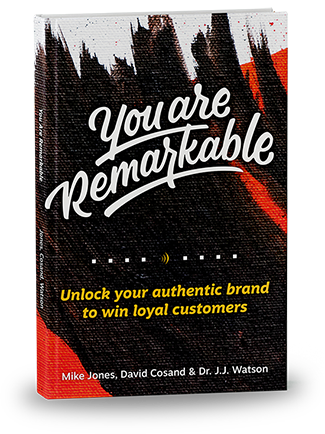Most companies start with goals and a dream of success. But over time, and for multiple reasons, we end up losing our grip on strategy. Let’s talk about how to get back on the path of success by reviving your culture of strategy.
Keeping to a strategy takes nerve. It doesn’t always work right away. In fact, the hardest obstacles that nobody else has overcome are hard for a reason. They take time. And when you add unexpected setbacks, like a sudden economic collapse, you need a culture of strategy to be able to stay the course.
Let’s talk about how to revive — and sometimes build from scratch — your strategy culture.
Why Does a Culture of Strategy Matter?
Plans are useless. Planning is essential.
Planning enriches your mind and acquaints it with the situation. Plans, on the other hand, are inflexible. If you rely on your plan, even after the situation changes, you’re not fighting the battle that’s in front of you.
What realizations do we take away from this?
“No plan survives first contact with the enemy.” Plans don’t last. We make plans based on variables that aren’t accurate. We can’t forecast the future, and we overestimate our ability to do so accurately.
So why is “planning” so different from a plan? Because rigid plans assume a static future. But we can’t tell what other people are going to do. We don’t know what variables are working behind the scenes.
Planning is practice. As we research and think through what’s ahead, we become acquainted with the variables and the overall situation. We become immersed. You become more familiar with the likely constants and likely variables, getting a picture of the basic structure in your head.
The benefit of strategy:
- Quicker realization when things are changing.
- A better understanding of the fundamental forces causing disruption.
- Better ability (speed and quality) of adjustment.
What happens if we ignore planning?
- Obsolete decisionmaking. We’re behind. We make decisions late. Before we can bring one project to completion, it’s obsolete, which leads to waste.
- We become commodity players making trinkets that other people are probably making better and for better reasons.
Growing Your Strategic Culture.
Is It Even Possible?
Resistance: how can you change an entire culture? It’s impossible. Not so. McKinsey has this very complicated way of explaining it. But it comes down to this:
- Brand values. What is the brand willing to go to battle for? Establish long-term thinking as a value. If one of your values is long-term success and long-term responsibility, this means you’ll need to think ahead and set up systems that can be built upon. And you’ll do things for your customers that solve long-term problems. But watch out. Lots of companies claim this, but then they panic when a recession comes or when profits are down. They forget their values and focus only on making sales. They lose their identity to generate income.
- Brand traits. If those values are true, in this organization, then how does that look?
- Application. How do our values and traits change our organization overall? At the department level?
- Measurement. How do we measure and reward our progress toward this new culture? Your values need to be measured. Actions, not just words, you’re now obligated to turn those desires into actions with measurable, achievable outcomes.
Remember: values don’t live in an organization. They live in the hearts of each individual person and are expressed when they all come together.
State Your Goals.
Stated strategic goals set the stage for measurement in the long term. But this doesn’t mean you can’t measure progress toward them. You can create a model that will get you where you need to go in increments.
Let’s say you want to organize HR processes. Your goal is to make things easier for the HR team by simplifying processes and creating checklists that make processes repeatable.
This costs money in the short term, but over time, you should see better morale in HR and less cost of onboarding HR employees and other employees as well as less overall cost.
How does this help?
- When you make strategy a focus, you ask departments to invest in the future, and not just in the next quarter.
- Admittedly, this is hard to do when you’re held accountable to shareholders, like in a publicly traded company. It messes with stock prices, pretty much no matter what you do.
- But it’s an advantage for smaller companies who have the ability to build momentum, organization, and systems that can be flexible for the long term and build the market value of the business.
For example, this progress can be modeled and measured.
- Q1: costs go up as you’re setting up the processes.
- Q2: costs begin to go down as people start using the new processes.
- Q3: costs continue to drop.
- Q4: one of your HR employees quits and you don’t replace the salary because you no longer need so many people in HR. (of course, you can’t exactly plan for that, but the principle stands).
All this has to come from the top. The managers, directors, etc. who implement this need to be asked about it. And when you ask about it, they know you care.
Develop Your Influence.
Your influence matters. It points people in the right direction and helps them to be their best. But more specifically, how do you apply influence to build a culture of strategy? You articulate the vision and inspire imagination for what’s ahead. And you recognize people as they catch on.
As a leader, your ability to gain trust and articulate the vision well will inspire faith in your team. You can build this by:
- Keeping to the goal.
- Living out values consistently.
- Holding your team accountable.
- Giving regular encouragement, verbalizing the faith you have in them to complete the mission, even as you’re helping them see their blind spots.
How do you develop influence? Focus on the important things, always bringing everyone’s eyes back to the goal. Then hold people accountable to living out the values as they accomplish the goal.
But don’t be anxious or impatient. You don’t force anything to happen. Let the goal — and everyone’s realization that you’re doing the right thing — do the work. It doesn’t have to change overnight.
Hire For Strategy
Once you have this mindset in place, know which roles especially require a strategic mindset. For those roles, add them to the job description. Then discuss it in the interview and see if the candidate can ask good questions, apply their experience from other roles they’ve had, and are generally optimistic.
Enshrine Your Strategic Orientation for the Long Term
It takes nerve and faith in your values and your long-term plan to stay with it, even in the face of the unexpected. But if you keep clear values at the center, plan toward your long-term goals, develop your influence and hire strategic thinkers, you’ll develop a culture that oozes confidence when others are losing their nerve.



